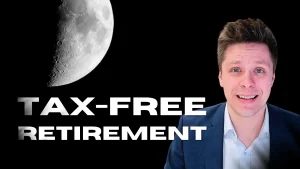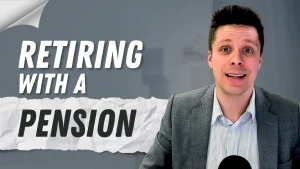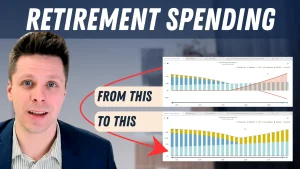[vc_row][vc_column][vc_column_text]More and more Canadians are retiring with debt, but does that make it a viable solution for your retirement plan? We would all like to be debt free once we retire but it isn’t always possible.
Ask yourself this
The big question you need to ask yourself is “How was the debt accumulated?” If you have a balance owing on a line of credit or a credit card, is it because you were living above your means? If so, retiring with that debt can be problematic. Once you retire, you will likely be on a fixed income and credit card debt can put you in a tough financial position. If you’re receiving a monthly pension, it’s not like you can work some overtime and use the funds to pay off your debt. If you’re planning on generating your income from an investment portfolio, you can’t use it as a piggy bank to pay off your debt whenever you live above your means. There are tax consequences on withdrawals and you need the funds to last throughout your retirement. Focus on paying off the debt before you retire and keep these types of debts under control in retirement.
On the other hand, if you have a mortgage against your home or a balance remaining on a car loan, it may be feasible to carry these debts in retirement. These types of debts generally have set payments and are a lot easier to budget for. Also, you know when they will be paid off.
What if expenses surpass retirement income
Meet Julie: Julie is 65 and would like to retire at the end of this year. With the help of a financial planner, she has determined her portfolio will be able to provide her with $5,000 per month until she reaches age 90. Julie figures her retirement lifestyle will cost her $4,500 per month as she intends to travel a lot to visit her grandkids across Canada. Based on these projections, Julie will have a $500 per month surplus cash flow. That is, until she factors in her debt payments of $1,000 per month.
Julie has $100,000 remaining on her mortgage from an extensive renovation that she completed last summer. Based on her current $1000 per month payment and interest rate, she will have this debt paid off in 10 years. This debt reduces the cash flow available for her lifestyle to $4,000 per month which is $500 short of her expected expenses.
Julie would like to retire as soon as possible, but she fears the impact this debt will have on her monthly cash flow. She would like to be able to visit her grandkids as much as possible and the thought of working a few more years to reduce this debt is not appealing to her.
Restructuring debt vs delaying retirement
By restructuring her debt, Julie will be able to attain her goal of having $4,500 per month to maintain her lifestyle.
If she re-amortizes her mortgage over 25 years rather than 10, her payments would fall to $500 per month – a rather significant reduction.
Of the $5,000 per month she is withdrawing from her investments, $4,500 can go towards her lifestyle and the remaining $500 can go towards her debt repayment. By employing this strategy, she can retire today!
This strategy doesn’t come without tradeoffs. By increasing the amortization on her mortgage to 25 years, Julie will end up paying approximately 2.7 times more in interest cost. She also faces the risk that mortgage rates will be higher when she renews after her 5-year term which could affect her cash flow.
What’s the best strategy?
Deciding which strategy is best is really up to the individual. If Julie doesn’t like the thought of paying more interest, she can keep working until her debt is paid off. On the other hand, if she is okay with the higher interest costs on her mortgage, she can retire today and spend more time with her grandkids.
Every situation is different and there can be many deciding factors. Usually, I end by saying something about a dollar in your pocket is better than in someone else’s. In this case, only you can judge whether it is or not. Whichever your personal preference may be, I highly suggest reviewing your case with a financial planner who can help you decide what’s truly in your best interest.
[/vc_column_text][/vc_column][/vc_row]






